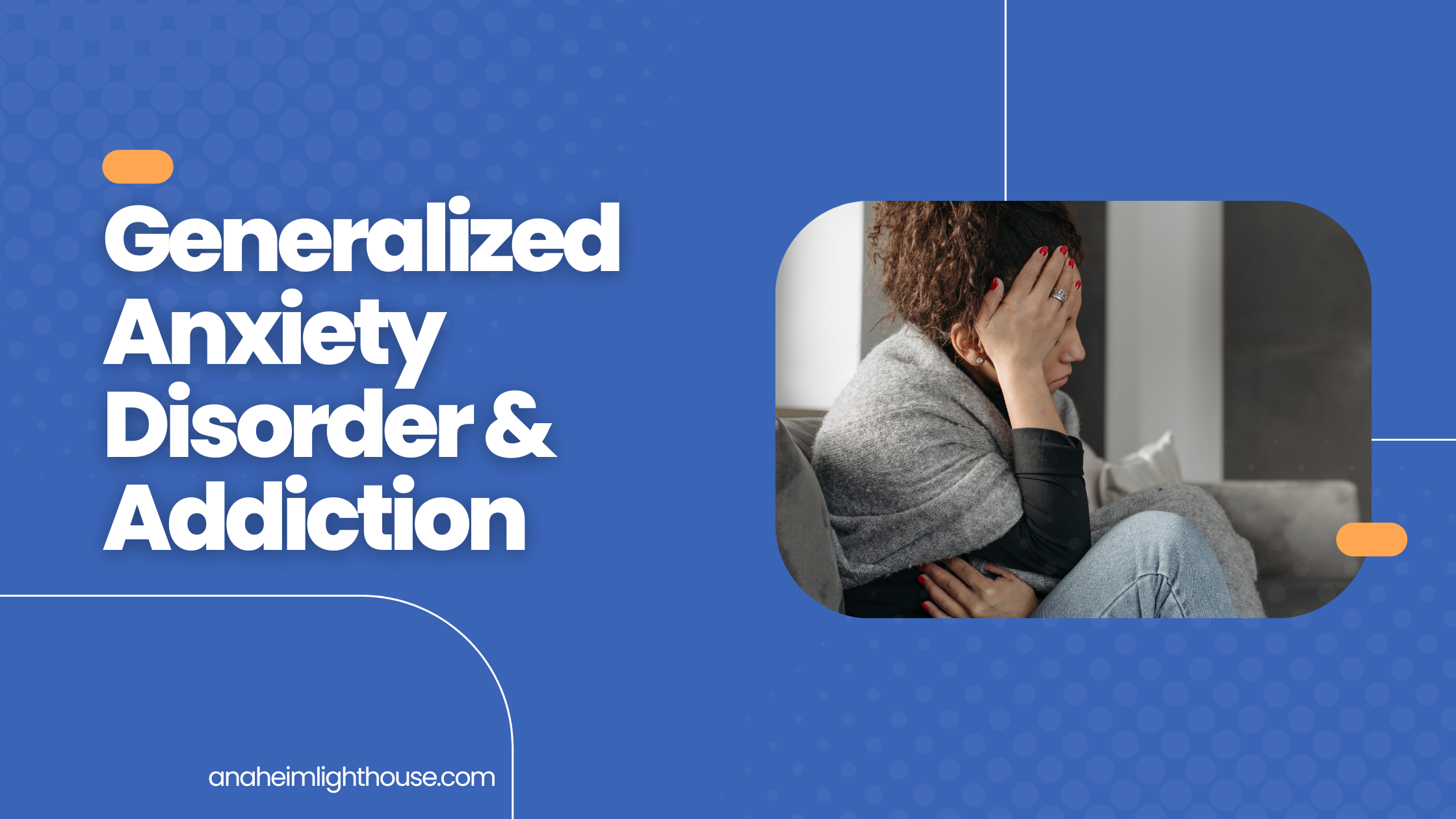Generalized Anxiety Disorder And Addiction
Most people with anxiety disorders don’t realize that they have an illness. They may know that they feel more anxious than “normal” but dismiss their symptoms as personality quirks or nerves. And unfortunately, many people are just as unaware of the link between anxiety and addiction as their patients are.
In this article, we will discuss the link between anxiety and addiction, as well as the treatment options available for those suffering from both disorders.
What Is Generalized Anxiety Disorder?
Generalized Anxiety Disorder (GAD) is one of the most common anxiety disorders, affecting about 20% of the population. But GAD is often misdiagnosed or overlooked because its symptoms can be vague and hard to pinpoint.
People with GAD are chronically anxious about a variety of things, even when there is no apparent reason to be anxious. They may worry about their health, their job, their family, or the world in general. And this worry can be all-consuming, interfering with their ability to work and socialize.
Signs of Generalized Anxiety Disorder
People with GAD often worry about many different things daily, and this worry can interfere with work, school, and personal relationships. Other signs of GAD include feeling tense or “on edge” most of the time, restlessness, difficulty concentrating, and irritability.
Below are some common symptoms of GAD:
- Inability to concentrate
- Restlessness
- The difficulty of staying relaxed and calm
- Over fatigue
- Uncontrollable sweating
- Dizziness
Statistics of Generalized Anxiety Disorder in the United States
This mental disease is highly prevalent and co-occurs with addiction and alcohol use disorder. It greatly disables and depresses the quality of life of the person because it hampers normal performance for work and school.
Below are some data representing the status of GAD, addiction, and alcoholism in the U.S.
- There is a 7% rate of the U.S. population suffering both from alcohol use disorder and GAD.
- Among the population of patients having GAD, 20%-25% are also suffering from addiction.
- In the U.S., 3.1% of the total population is suffering from GAD.
- Based on the total population, 30%-35% are having a dual diagnosis, that is, alcohol use disorder and GAD.
Risk Factors of Generalized Anxiety Disorder
Several risk factors can contribute to the development of anxiety disorders, and it is important to be aware of them so that you can take steps to avoid them. Below are some of the risk factors one must avoid for Generalized Anxiety Disorder.
- Unhealthy appetite or lack of nutrition
- Drinking caffeinated drinks
- A confrontation of being diagnosed with a critical illness
- Financial loss
- Problematic relationship
- Having stage fright
- Terrible past experiences
- Negative stress from life, work, love, and life
Linking Addiction and Generalized Anxiety Disorder
Addiction and anxiety disorders are often seen as separate conditions, but there is a strong link between the two. People with anxiety disorders are more likely to develop an addiction and vice versa. This condition is known as a co-occurring disorder or dual diagnosis.
The exact cause of this link is not fully understood, but it is thought that both conditions share some risk factors. Additionally, people with anxiety disorders may turn to substances as a way of self-medicating their symptoms.
Whatever the cause, it is important to seek treatment for both conditions concurrently. If only one condition is treated, it is likely that the other will persist, making recovery difficult. Fortunately, there are many effective treatments available for co-occurring disorders, so there is hope for a full and lasting recovery.
Handling Risk Factors of Generalized Anxiety Disorder and Addiction
Those struggling with GAD often turn to substance abuse as a way of self-medicating, which can lead to addiction. While there is no one-size-fits-all solution for managing GAD and addiction, there are some risk factors that should be taken into account.
For example, individuals with a family history of either disorder are more likely to develop them themselves. Additionally, trauma and chronic stress have been linked to both GAD and addiction. As such, it is important for those struggling with GAD to find healthy coping mechanisms, such as therapy or exercise, to help manage their symptoms.
- Doing meditation and yoga to relax one’s mind from overthinking and reacting
- Listening to mellow music to calm the mind and body
- Staying away from drinks and foods with caffeine contents
- Keeping a healthy and open line of communication with families and friends
Comprehensive Treatment for Generalized Anxiety Disorder and Addiction
If you’re struggling with both anxiety and addiction, this can make finding the right treatment extremely difficult, as both disorders need to be addressed simultaneously. Dual diagnosis programs are specialized programs that provide comprehensive care for both disorders. These programs generally include a combination of individual therapy, group therapy, and medication management.
Dual diagnosis programs can be extremely effective in treating both disorders, but it is important to find a treatment center that has experience in treating both disorders. When searching for a dual diagnosis program, look for one that has specialized programs for both anxiety and addiction. This will ensure that you receive the best possible care and treatment for your specific needs.
While there are many dual diagnosis programs out there, not all of them are created equal. Patients often require a higher level of care than those who only suffer from one disorder, so it is important to find a treatment center that can provide the level of care you need.
In addition, look for a treatment center that has a good track record of success in treating dual diagnosis patients. With the right treatment program, you can overcome both your anxiety and addiction and lead a healthy, happy life.
















